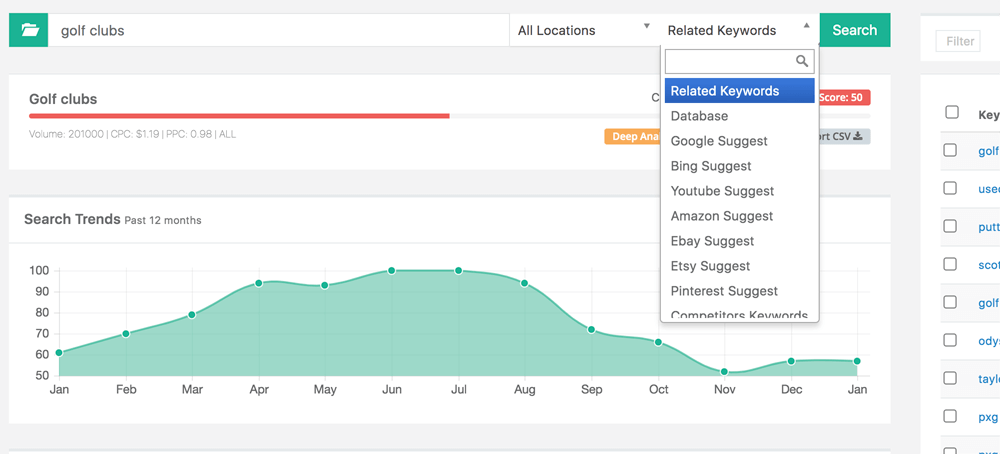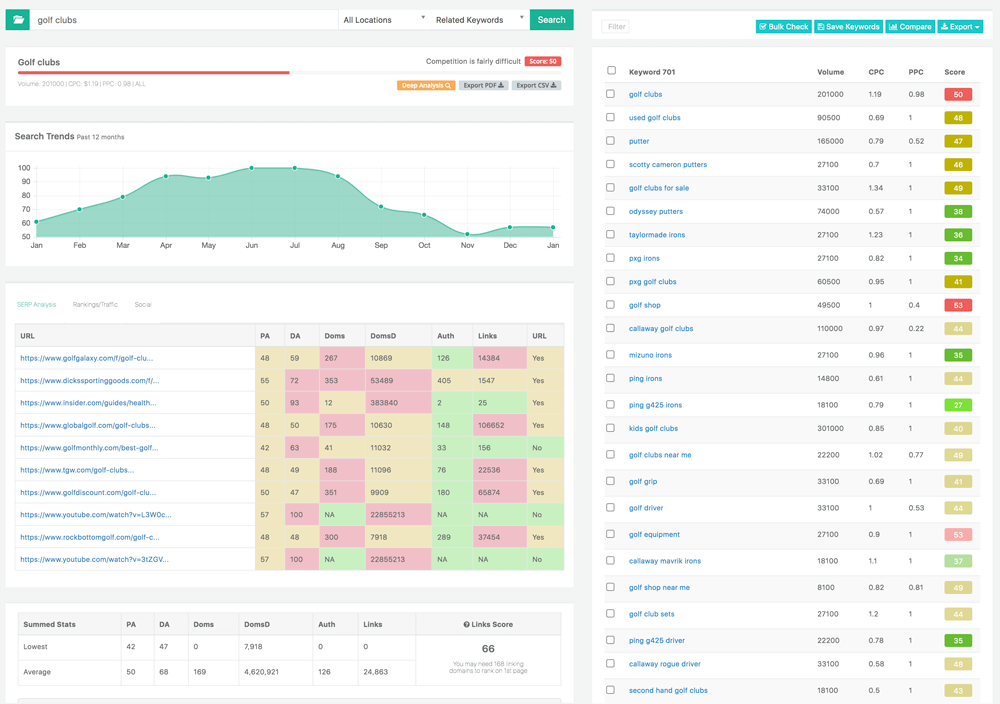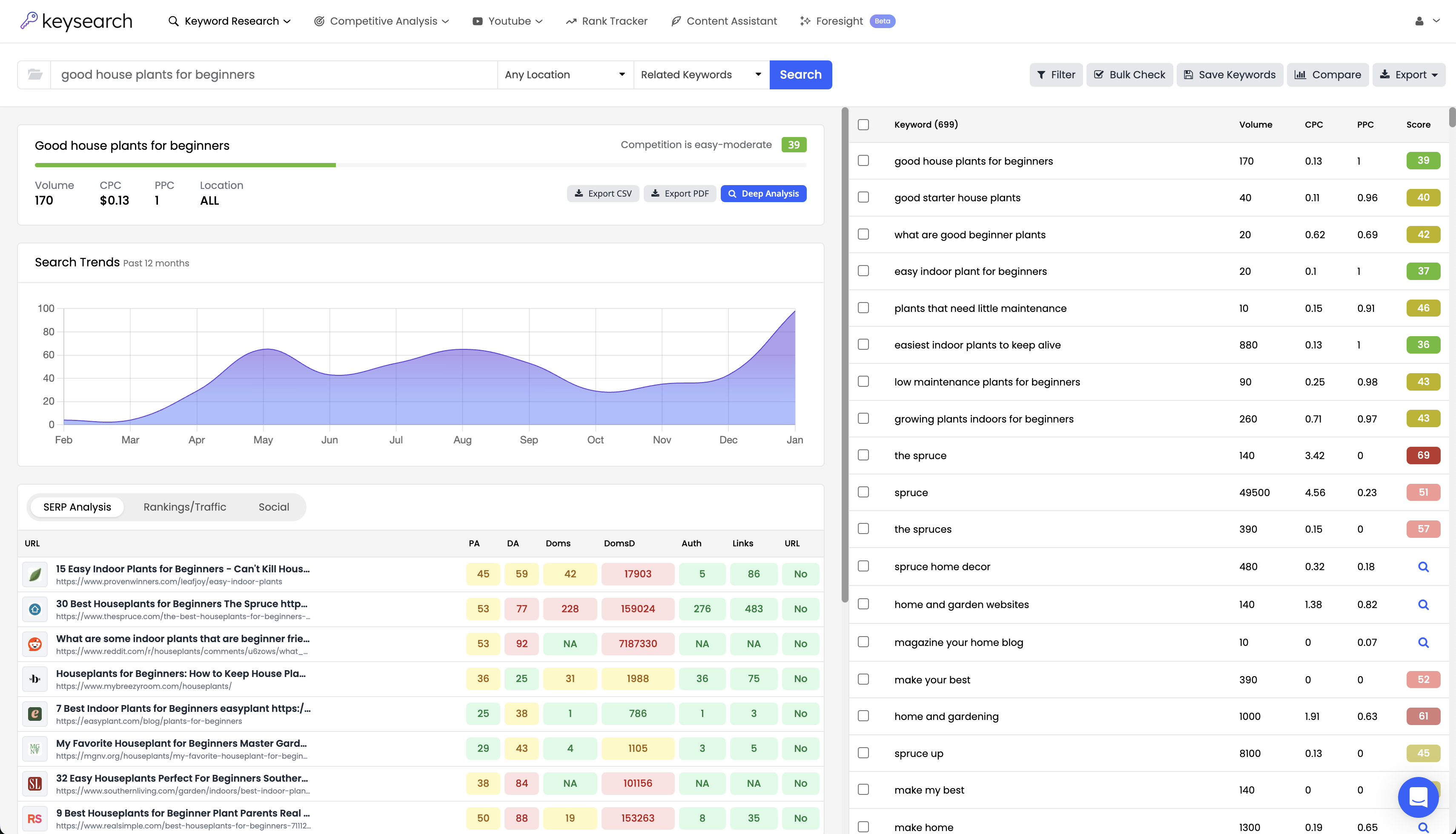Knowing the basics of keyword research is just as important as any of the other major aspects of SEO (site optimization, backlinks, content, etc..). When you get down to it, all search engines really do is return what their algorithm thought was the best results for a searched keyword or topic. This means it’s very important to know which keywords and topics your site’s content should be targeting. This makes the entire SEO process much easier.
We can optimize our sites to death, write incredible content and have the best links in the world. Even with all that, if our site is targeting keywords and topics that don’t drive traffic or even worse targeting keywords that are too competitive for us to ever rank for, then our efforts and time are wasted. This is why keyword research is extremely important!

Keywords The Backbone of SEO
Now the reason why I wanted to go over keyword research before diving into the other aspects of the tutorial is that we will be referencing keywords at all steps of our SEO process.
When discussing backlinks. keywords will be important as to how we want Google to view our page from external sources. When talking about content, keywords and topics will be important as to how we develop content throughout our site to maximize our chances of getting ranked for specific phrases. Also when we are going over site optimization, keywords will be very important as to where and how we include them, how they are used with internal linking, and other tags throughout our site.
So in essence keywords are the backbone of what SEO is all about. When people search for something, we want our site to show up for those searched terms. Simple as that!
Finding a Niche

Finding a niche for your website is where it all begins. Some of us have already had our niche decided. For example, I am the creator of an SEO tool so my niche is in SEO, and also dabbles a bit in internet marketing. Maybe you own a clothing store or already have a travel blog. For us, we are going to use keyword research to work within our niche since our niche is already decided. For those of you who are still deciding on what website to create there are a few different ways to go about it.
Find Something You Love
If you are looking for a site that will be ever-growing, something you can put your passion into, and something that will be a long-term asset, then this is, of course, the way to go. Working in a niche that you love is always going to make certain aspects of the work more enjoyable. The downside of this is that the things you love might be in tougher niches, niches with very little traffic, or niches that are tough to monetize.
Find an Easy Niche You Can Dominate
This strategy may not be as personally satisfying as creating something in a niche you love but it can be much more profitable and all-around easier if you pick the right niche. With this strategy, you can find niches that are much less competitive, and hence you will have an easier time ranking for traffic-generating keywords. Since there is less competition there is more opportunity for high rankings. The downside of this is that you may not really enjoy the day in and day out of a niche you’re not so interested in.
Find a Long-Term Business
Now unlike the first 2 strategies, this one is a little different. Maybe you worked in a clothing store and think you can start a great website selling clothes. You know the ins and outs, it may not be your passion and it may not be the easiest niche but you know it like the back of your hand. Or maybe you have a hunch of something you think will be great and want to get in now. Whatever it is, there are many reasons why you may decide that just finding the easiest niche or a niche within something you love is not the right fit for you.
Brainstorming Ideas For Niches

A great place to start is, of course, the Keysearch niche ideas generator where you can brainstorm and read more about different ways of Finding Niche Ideas. If you are into affiliate marketing maybe Offervault will help get some ideas going or even just look around the house. Get creative is what I always say!
Have you taken 20 seconds yet to signup for your Keysearch account? If so you will be able to access the brainstorm feature and also the keyword research tools that we will discuss below.
Generating Keyword Ideas
Ok, Let’s assume we’ve found our niche, and it’s a website about golf clubs. Now unless you happen to be the owner of Dicks Sporting Goods or a highly authoritative golf website, it’s going to be very tough to rank for the keyword “golf clubs”. It will probably be tough to rank for most keywords that you could think of off the top of your head.. “kids golf clubs”, “women’s golf clubs” etc… I don’t need to do my research to know those will most likely be difficult keywords to rank.
Why do I know this? Well because common sense would tell me that big businesses with hugely authoritative websites know there is money to be made by ranking for those keywords so they are probably already targeting those keywords and hogging up the first page results. Sites with a lot of authority will always be harder to outrank especially if they have pages specifically optimized for those keywords.
Our goal is not to try and compete with big players like Dicks Sporting Goods for these big-ticket keywords but rather find less competitive keywords that we can actually rank for, and that still drive traffic. In order to do this, we need to start by generating keyword ideas and get our brains going.
Using Keysearch we have many different ways to do this. We can use our Related Keywords option (most recommended) or one of our many “Suggest” options, your competitor’s keywords or use our Keysearch Database function that contains close to 2 billion (yes that’s with a “B” billion) keywords.

These will all generate keyword ideas related to your seed keyword. For this tutorial, I have used the Related Keywords option. You’ll see below that it’s generated about 700 keyword ideas all related to our seed keyword.

Now here is where we want to find those coveted long-tail keywords that are easy to rank and have low SEO competition. Please make sure you check out our free tutorial at the link below that finishes this example and shows you exactly how to find those easy to rank keywords.
-> Finding Easy To Rank Keywords Tutorial <-
What Are We Looking For?

Did you read the tutorial above… well… did you :). If not, do not continue until you’ve read the tutorial above! As the tutorial above shows, we want to find keywords with good search volume that have low competition, which hopefully makes them easy to rank.
I can not stress enough how important this is. We don’t want to waste our time creating loads of content for topics that nobody reads about. It is one of the biggest mistakes I see. If the topic of our content has little to no searches per month then even if we rank as high as possible there is nobody looking for it.
We also will usually want to target long-tail keywords, especially in the beginning until our site builds enough authority where it may rank for tougher shorter keyword phrases with more search volume. These long-tail keywords add up and can have a huge impact. I have had great success with sites that only rank for keywords with search volumes in the 30-200 searches per month range but rank for thousands of these keywords.
Even if we are only ranking at the bottom of page 1 or the top of page 2, if we are ranking for thousands of search terms there will be traffic. Think of it this way. Let’s say I only rank for long-tail keywords, many of which only have search volumes between 30-100. Let’s say through Google Search Console shows I have about 1000 of those ranking in the top 100. And about 50 in the top 10. Shall I do the math? I think you get the point. That would mean it’s the equivalent of getting traffic for keywords that have 10’s of thousands of searches per month.
This is the secret, my friends! This is how you get your feet off the ground and start pulling in free traffic, but it all starts with keyword research. It is where your SEO process begins and ends. So please be sure to read the entire tutorial Finding Easy to Rank Long Tail Keywords to see a full walkthrough to get you started.
What We Learned

In part 3 of our tutorial, you should now have a good idea of what keyword research is and how to go about finding the best keywords to target. Let’s take a look at some of the major points talked about in this tutorial.
- Keyword research is the backbone of SEO & should never be overlooked
- You want to target keywords that drive traffic
- There are different ways of finding a niche. Make sure you choose the right choice for you
- Don’t target keywords that are too competitive
- Make sure there is at least some search volume so we know there is traffic
- Ranking for many low volume keywords can be just as good as ranking for a few high volume keywords
Continue on to Part 4 of the tutorial: On-page SEO Specifics
- How to Do Keyword Research for Free: Best Free Keyword Research Tools in 2024 - December 13, 2024
- Benefits of Keyword Clustering: Why is it Important to Group Relevant Keywords Together? - December 13, 2024
- What is Keyword Density in SEO and Its Importance - December 13, 2024








